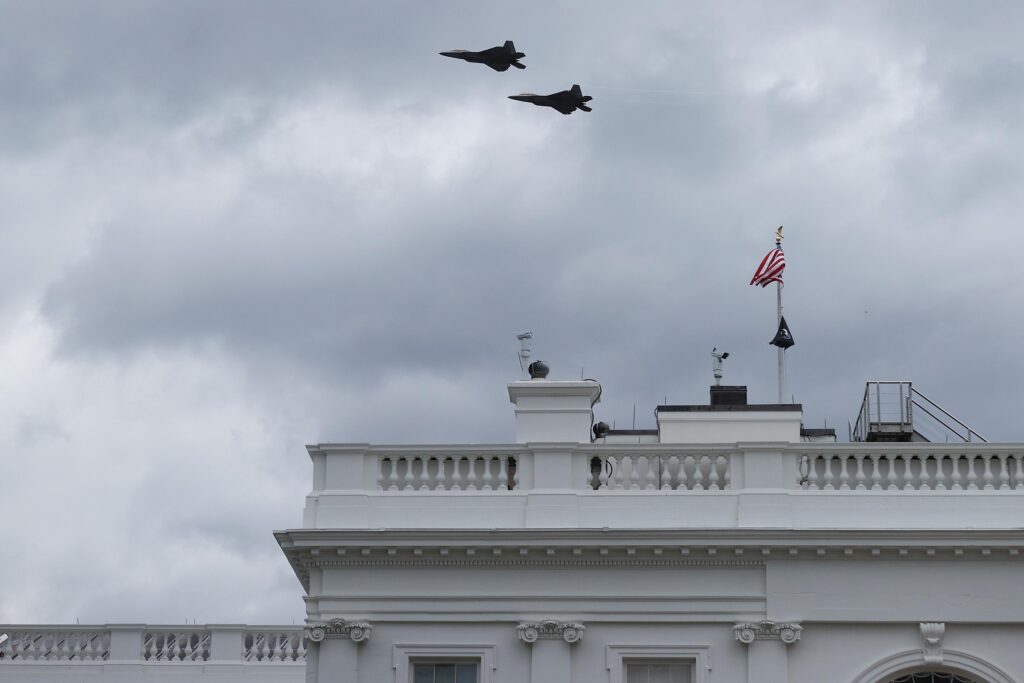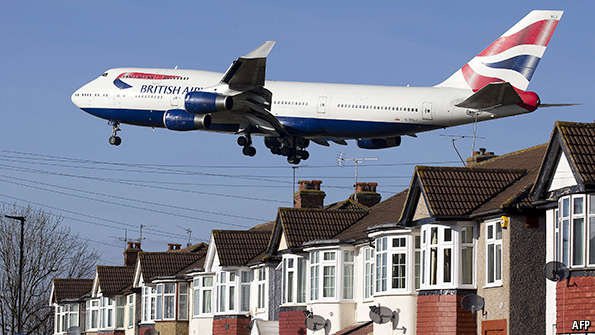Military planes may fly over your house for various reasons, including training exercises, routine patrols, or responding to emergencies. It’s a normal part of military operations and generally poses no immediate cause for concern.
Some major types of military exercises involve flying over residential areas.
- Close air support drills may involve flying over residential areas.
- Urban warfare exercises often include aircraft flying over populated zones.
- Airborne reconnaissance training sometimes requires flights over residential areas.
- Joint military exercises might incorporate flying over urban environments.
- Tactical helicopter training can involve low-level flights near residential zones.
- Evacuation drills may entail military aircraft flying over residential areas.
Understanding Military Exercises and Training Operations

A. Explanation of Military Aircraft Training Exercises
Military aircraft training exercises are essential components of a nation’s defense strategy. They serve several purposes, including honing the skills of military personnel, testing equipment, and ensuring military readiness for potential conflicts.
These exercises involve various activities, such as aerial combat training, surveillance, search and rescue, and transportation missions.
Training exercises involving military aircraft are meticulously planned and executed to simulate real-world scenarios.
This preparation is crucial for ensuring that armed forces can respond effectively and efficiently in times of crisis. As part of these exercises, military planes often fly over different terrains, including residential areas, to replicate diverse operational environments.
B. Importance of Training for Military Readiness
Training is the cornerstone of military readiness. The importance of being well-prepared cannot be overstated, as it directly impacts a nation’s ability to defend itself and protect its interests.
Military exercises involving aircraft play a vital role in maintaining this readiness by allowing personnel to practice and refine their skills.
Skill Development: Military personnel undergo extensive training to acquire the knowledge and expertise needed to operate complex aircraft and execute missions.
Regular exercises help maintain and improve these skills, ensuring that pilots and crew members are proficient in their roles.
Equipment Testing: Military exercises provide an opportunity to assess the performance of aircraft, weapons systems, and other equipment in realistic scenarios. This helps identify any issues or shortcomings that may need to be addressed.
Coordination and Collaboration: Joint exercises involving multiple military branches enhance coordination and collaboration among different units. This interoperability is crucial in modern warfare, where various forces must work together seamlessly.
Crisis Response: Training exercises prepare military personnel to respond quickly and effectively to unexpected situations, including natural disasters or hostile threats. This rapid response capability can save lives and protect national security.
C. Various Types of Military Exercises that Involve Flying Over Residential Areas
Several types of military exercises necessitate flying over residential areas:
Close Air Support (CAS) Drills: CAS exercises involve aircraft providing air support to ground forces. These drills often take place in simulated urban environments, which may include flying over residential areas to replicate real-world combat scenarios.
Urban Warfare Exercises: In urban warfare training, military units practice operations in densely populated areas. Aircraft, including helicopters and fighter jets, may be used to simulate air support or evacuation missions over residential zones.
Airborne Reconnaissance Training: Reconnaissance aircraft conduct training flights to gather intelligence. These flights may involve overflying residential areas to practice data collection techniques.
Joint Military Exercises: Large-scale joint exercises often incorporate aircraft flying over urban or residential areas to test the coordination between different military branches.
Tactical Helicopter Training: Helicopter units frequently conduct low-level flight training near residential zones to simulate real-world scenarios and improve their ability to navigate complex terrain.
Evacuation Drills: In disaster relief or humanitarian operations, military aircraft may be involved in evacuation exercises, including flying over residential areas to practice airlifting civilians to safety.
Surveillance and Security Measures
A. Military Planes for Watching
Military planes are like flying cameras that help watch over our country. They have special cameras and sensors to see things from high up in the sky. They play a big role in monitoring what’s happening on the ground.
B. Keeping Our Country Safe
Keeping our country safe is really important. National security means making sure we’re safe from bad things that could happen, like attacks or other dangers.
Military planes help by informing us about possible problems before they become big issues.
C. When Military Planes Are Used for Safety
Military planes are used for safety in different situations:
Border Watch: They keep an eye on our borders to make sure no one comes in or goes out without permission, especially if they shouldn’t.
Sea Patrol: They watch over our oceans and coasts to stop illegal fishing or smuggling.
Natural Disasters: When big disasters like hurricanes or floods happen, military planes help figure out how bad things are and how to help people.
Bad People Watch: They help find out what bad people might be up to, like terrorists, to keep us safe.
So, if you see military planes flying over your house, they’re probably just doing their job to keep our country safe and secure.
Airspace Monitoring and Defense
A. Military Planes Keep Watch in the Sky
Military planes are like guardians of the sky. They help watch over the airspace, like an invisible plane road. This is important because it keeps our country safe from any unwanted or dangerous flying.
B. Guarding Our Borders from the Sky
Military aircraft also play a role in protecting our country’s borders. Just like how guards stand at the entrance of a building, military planes patrol the skies to make sure no one is entering our country without permission.
C. How We Control the Sky
There are rules and control measures in place to keep our skies safe. Military planes help enforce these rules.
They make sure that only the right planes are flying in the right places at the right times. This helps prevent accidents and keeps us safe from any threats that might come from the air.
So, when you see military planes flying over your house, they’re helping ensure our airspace is secure and our borders are protected. It’s all about keeping our country safe from above.
Environmental and Humanitarian Reasons
A. Military Planes Help During Disasters
Military planes aren’t just for fighting wars. They also help when big disasters happen, like earthquakes, floods, or hurricanes. They bring in supplies, rescue people, and assess the damage from the air.
B. Putting Out Fires and Saving Lives
Sometimes, military aircraft are like heroes in the sky. They assist in putting out big fires by dropping water or chemicals. They also help find lost people in the wilderness or rescue those in danger.
So, when you see military planes flying over your house, they might be on a mission to help people and the environment during tough times. They’re like real-life superheroes in the sky!
VI. Experiencing Military Plane Flyovers

What to Do When Military Planes Fly Over
When you see or hear military planes flying over your area, staying safe is essential. Here’s what you should do:
Stay Calm: Don’t panic; military planes often have reasons for flying overhead.
Stay Informed: Listen to local news or authorities for any important instructions or information about the flyover.
Avoid Distractions: If you’re driving, don’t let the planes distract you. Keep your eyes on the road.
Respect Restrictions: Follow any safety restrictions or guidelines given by authorities.
B. Dealing with Noise and Disruption
Military planes can be loud and cause some inconvenience. Here’s how you can cope:
Ear Protection: Consider using earplugs or noise-canceling headphones if the noise bothers you.
Close Windows and Doors: To lessen noise and disruptions, keeping your windows and doors closed is a good idea.
Plan Ahead: If you know there’s a scheduled flyover, try to plan your activities around it to minimize disruption.
Be Patient: Remember that military aviation is essential for national security, and these flyovers serve a purpose.
C. Recognizing the Importance of Military Aviation
Military planes play a significant role in our lives, ensuring our safety and security. They protect our nation, assist in emergencies, and support humanitarian efforts.
While their presence can be inconvenient at times, it’s a reminder of the vital work they do to keep us safe and free.
FAQs
Why are military planes flying over my house?
Military planes might conduct training exercises, respond to an emergency, or fly routine patrols. It’s a normal part of military operations.
Do I need to be concerned about military planes flying overhead?
No, you generally do not need to be concerned about military planes flying overhead as they often conduct routine training, surveillance, or humanitarian missions to maintain safety and security.
Can I find out why military planes are in my area?
You can contact your local military base or check online for public affairs updates to get information about military activities in your region.
How low can military planes fly over residential areas?
Yes, you can often find out why military planes are in your area by checking local news and official military websites or contacting local authorities for information on scheduled exercises or missions.
Are there any restrictions on military flights over populated areas?
Yes, there are restrictions on military flights over populated areas, and they are typically subject to government regulations and safety protocols to minimize risks to civilians.
What should I do if I feel military planes are causing excessive noise or disturbance?
Yes, military planes usually require permission or authorization to fly over civilian areas, and their operations are subject to government oversight and regulations to ensure safety and security.
Do military planes need permission to fly over civilian areas?
No, military planes do not need specific permission to fly over civilian areas within their own country. Still, they operate under established regulations and airspace control measures to ensure safety and coordination.
Can I track military flights in real time to know when they’ll fly over my area?
No, real-time tracking of military flights is generally unavailable to the public for security reasons, so you cannot predict when they will fly over your area.
Are military planes armed when they fly over civilian areas?
No, military planes flying over civilian areas during routine training or non-combat missions are typically not armed, as safety is a primary concern. Weapons are reserved for operational missions.
Why do military planes sometimes fly in formations over residential areas?
Formation flying is a common training technique for military pilots. It helps them practice coordination and teamwork, but it’s usually temporary and not a cause for concern.
Conclusion
Military exercises involving aircraft flying over residential areas are integral to maintaining military readiness and ensuring the preparedness of armed forces.
These exercises are carefully planned and executed to replicate real-world scenarios, enabling military personnel to develop and refine their skills while testing equipment and fostering interagency collaboration.
While the presence of military aircraft over residential areas may be temporary and infrequent, they are a vital component of national defense and emergency response capabilities.
